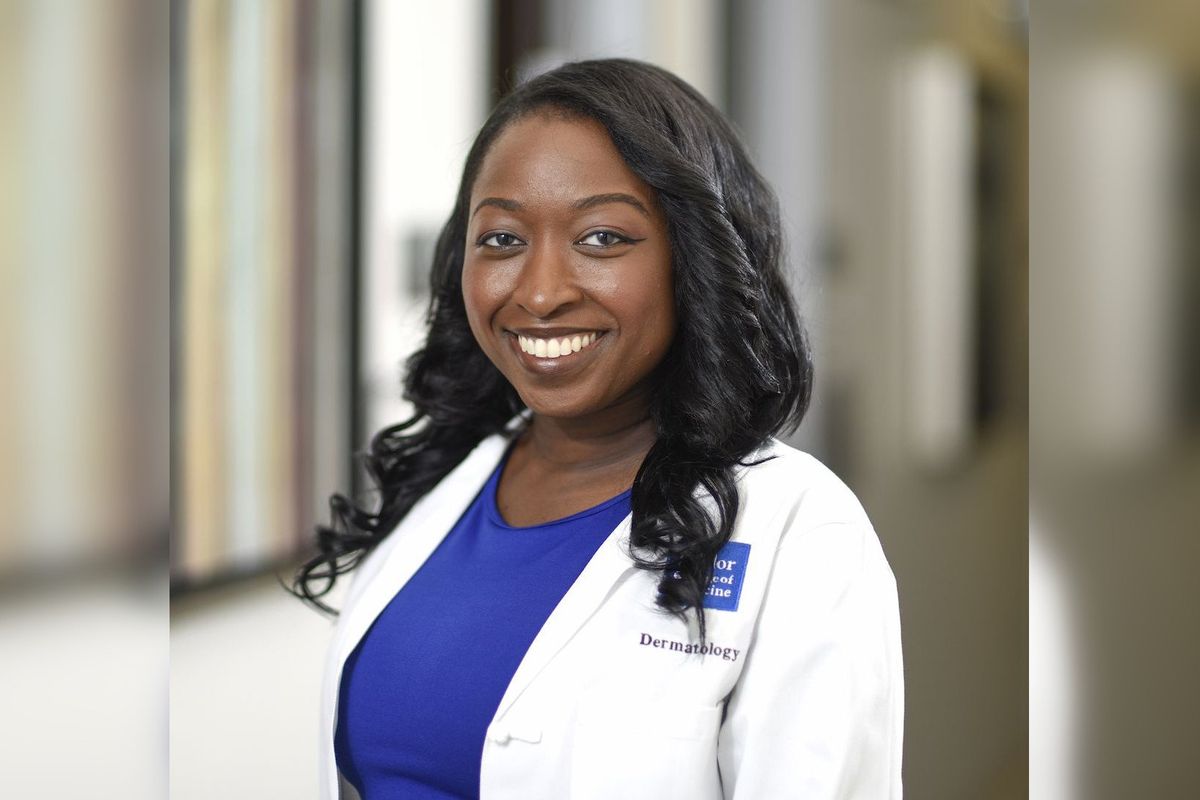Baylor Medicine opens innovatively inclusive dermatology center in Houston
skin care for all
All skin is created equal, but not all skin behaves the same. It’s with this in mind that Baylor Medicine Dermatology has announced the debut of its newest office.
The Skin of Color Clinic is located inside the Jamail Specialty Care Center and is devoted to the unique needs of patients of all ethnicities.
The leader of the Skin of Color Clinic is assistant professor of dermatology, Oyetewa Oyerinde. Dr. Oyerinde, a Howard University and University of Illinois at Chicago College of Medicine alum, completed her residency training at Harvard University, where she made it to the role of chief resident in her final year.
“I am excited to lead a clinic that addresses skin issues commonly found in underserved populations,” Oyerinde says in a news release. “I want people in Houston to know that there is a place where an expert will know how to care for their specific needs.”

Patients who identify as Black, African American, Latinx, Asian, or Native American all have different skin with varying requirements, which the Skin of Color Clinic will address in a culturally sensitive and competent manner. An awareness that some conditions affect people with darker skin tones differently than people with light skin tones informs the clinic’s work, as does the fact that there are also some diseases that disproportionately affect people of color.
Dr. Oyerinde specializes in issues including hyper- or hypopigmentation, scarring and non-scarring hair loss, acne keloidalis nuchae, and keloids. Meanwhile, Dr. Zeena Nawas will lead the cosmetic wing of the Skin of Color Clinic. Her areas of expertise include chemical peels, laser hair removal and DPN, and skin tag/seborrheic keratosis removal.
“Dr. Oyerinde will excel as the director of the Skin of Color Clinic because of her dedication to providing personalized care for patients of all ethnicities, skin tones and hair textures,” Dr. Ida Orengo, professor and chair of dermatology at Baylor, adds. “The Skin of Color clinic will focus on the treatment of the diverse complexions of our patients and address the gaps in treatment while aiming to correct disparities and help ensure inclusivity in Houston healthcare.”
To further address those disparities, Dr. Oyerinde is planning community outreach events for potential Houston-area patients who may be unaware that clinics like this exist.
- Report: Houston to see highest concentration of medical office project completions this year ›
- Rising TMC development names Houston health care institution as anchor tenant ›
- Houston health care institution secures $100M for expansion, shares renderings ›
- Houston organization launches new fellowship to support the future of space health ›
- Baylor Genetics lab is translating genetics research into clinical diagnostics - InnovationMap ›
